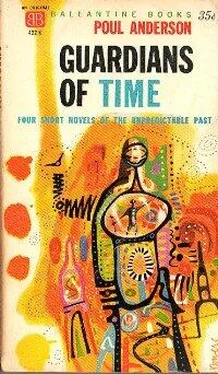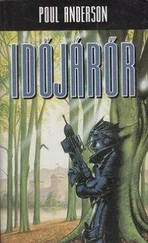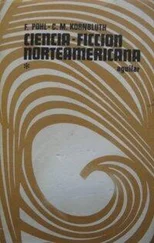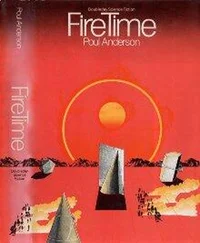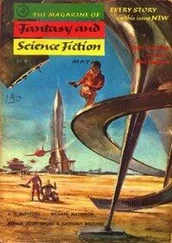Poul Anderson - Guardians of Time
Здесь есть возможность читать онлайн «Poul Anderson - Guardians of Time» весь текст электронной книги совершенно бесплатно (целиком полную версию без сокращений). В некоторых случаях можно слушать аудио, скачать через торрент в формате fb2 и присутствует краткое содержание. Год выпуска: 1962, Издательство: Ballantine, Жанр: Альтернативная история, на английском языке. Описание произведения, (предисловие) а так же отзывы посетителей доступны на портале библиотеки ЛибКат.
- Название:Guardians of Time
- Автор:
- Издательство:Ballantine
- Жанр:
- Год:1962
- ISBN:нет данных
- Рейтинг книги:3 / 5. Голосов: 1
-
Избранное:Добавить в избранное
- Отзывы:
-
Ваша оценка:
- 60
- 1
- 2
- 3
- 4
- 5
Guardians of Time: краткое содержание, описание и аннотация
Предлагаем к чтению аннотацию, описание, краткое содержание или предисловие (зависит от того, что написал сам автор книги «Guardians of Time»). Если вы не нашли необходимую информацию о книге — напишите в комментариях, мы постараемся отыскать её.
“Delenda est” Dec 1955;
“Brave To Be A King” Aug 1959;
“The Only Game in Town” Jan 1960;
“Gibraltar Falls” Oct 1975.
Guardians of Time
Guardians of Time — читать онлайн бесплатно полную книгу (весь текст) целиком
Ниже представлен текст книги, разбитый по страницам. Система сохранения места последней прочитанной страницы, позволяет с удобством читать онлайн бесплатно книгу «Guardians of Time», без необходимости каждый раз заново искать на чём Вы остановились. Поставьте закладку, и сможете в любой момент перейти на страницу, на которой закончили чтение.
Интервал:
Закладка:
On the way back he spied a couple of signs on the walls. The script was obviously Semitic, but though Van Sarawak had some knowledge of Hebrew through dealing with the Israeli colonies on Venus, he couldn’t read it.
Locked in again, they saw the other prisoners led off to do their own washing: a surprisingly merry crowd of bums, toughs, and drunks. “Seems we get special treatment,” remarked Van Sarawak.
“Hardly astonishing,” said Everard. “What would you do with total strangers who appeared out of nowhere and used unheard-of-weapons ?”
Van Sarawak’s face turned to him with an unwonted grimness. “Are you thinking what I’m thinking?” he asked.
“Probably.”
The Venusian’s mouth twisted, and horror rode his voice: “Another time line. Somebody has managed to change history.”
Everard nodded.
They spent an unhappy night. It would have been a boon to sleep, but the other cells were too noisy. Discipline seemed to be lax here. Also, there were bedbugs.
After a bleary breakfast, Everard and Van Sarawak were allowed to wash again and shave with safety razors not unlike the familiar type. Then a ten-man guard marched them into an office and planted itself around the walls.
They sat down before a desk and waited. The furniture was as disquietingly half-homelike, half-alien, as everything else. It was some time before the big wheels showed up. There were two: a white-haired, ruddy-cheeked man in cuirass and green tunic, presumably the chief of police, and a lean, hard-faced half-breed, gray-haired but black-mustached, wearing a blue tunic, a tam o’shanter, and on his left breast a golden bull’s head which seemed an insigne of rank. He would have had a certain aquiline dignity had it not been for the thin hairy legs beneath his kilt. He was followed by two younger men, armed and uniformed much like himself, who took up their places behind him as he sat down.
Everard leaned over and whispered: “The military, I’ll bet. We seem to be of interest.”
Van Sarawak nodded sickly.
The police chief cleared his throat with conscious importance and said something to the—general? The latter answered impatiently, and addressed himself to the prisoners. He barked his words out with a clarity that helped Everard get the phonemes, but with a manner that was not exactly reassuring.
Somewhere along the line, communication would have to be established. Everard pointed to himself. “Manse Everard,” he said. Van Sarawak followed the lead and introduced himself similarly.
The general started and went into a huddle with the chief. Turning back, he snapped, “ Yrn Cimberland?”
“Gothland? Svea? Nairoin Teutonach?”
“Those names—if they are names—they sound Germanic, don’t they?” muttered Van Sarawak.
“So do our names, come to think of it,” answered Everard tautly. “Maybe they think we’re Germans.” To the general: “ Sprechen sie Deutsch?” Blankness rewarded him. “ Taler ni svensk? Niederlands? Dönsk tunga? Parlez-vous françcais? Goddamit, habla usted español?”
The police chief cleared his throat again and pointed to himself. “Cadwallader Mac Barca,” he said. The general hight Cynyth ap Ceorn. Or so, at least, Everard’s Anglo-Saxon mind interpreted the noises picked up by his ears.
“Celtic, all right,” he said. Sweat prickled under his arms. “But just to make sure…” He pointed inquiringly at a few other men, being rewarded with monickers like Hamilcar ap Angus, Asshur yr Cathlan, and Finn O’Carthia. “No… there’s a distinct Semitic element here too. That fits in with their alphabet.”
Van Sarawak wet his lips. “Try classical languages,” he urged harshly. “Maybe we can find out where this history went insane.”
“Loquerisne latine?” That drew a blank. “Ἑλλευιζεισ?”
General ap Ceorn jerked, blew out his mustache, and narrowed his eyes. “ Hellenach?” he demanded. “ Yrn Parthia?”
Everard shook his head. “They’ve at least heard of Greek,” he said slowly. He tried a few more words, but no one knew the tongue.
Ap Ceorn growled something to one of his men, who bowed and went out. There was a long silence.
Everard found himself losing personal fear. He was in a bad spot, yes, and might not live very long; but whatever happened to him was ludicrously unimportant compared to what had been done to the entire world.
God in Heaven! To the universe!
He couldn’t grasp it. Sharp in his mind rose the land he knew, broad plains and tall mountains and prideful cities. There was the grave image of his father, and yet he remembered being a small child and lifted up skyward while his father laughed beneath him. And his mother… they had a good life together, those two.
There had been a girl he knew in college, the sweetest little wench a man could ever have been privileged to walk in the rain with; and Bernie Aaronson, the nights of beer and smoke and talk; Phil Brackney, who had picked him out of the mud in France when machine guns were raking a ruined field; Charlie and Mary Whitcomb, high tea and a low cannel fire in Victoria’s London: Keith and Cynthia Denison in their chrome-plated eyrie above New York; Jack Sandoval among tawny Arizona crags; a dog he had once had; the austere cantos of Dante and the ringing thunder of Shake-speare; the glory which was York Minster and the Golden Gate Bridge—Christ, a man’s life, and the lives of who knew how many billions of human creatures, toiling and enduring and laughing and going down into dust to make room for their sons… It had never been.
He shook his head, dazed with grief, and sat devoid of real understanding.
The soldier came back with a map and spread it out on the desk. Ap Ceorn gestured curtly, and Everard and Van Sarawak bent over it.
Yes, Earth, a Mercator projection, through eidetic memory showed that the mapping was rather crude. The continents and islands were there in bright colors, but the nations were something else.
“Can you read those names, Van?”
“I can make a guess, on the basis of the Hebraic alphabet,” said the Venusian. He began to read out the words. Ap Ceorn grunted and corrected him.
North America down to about Colombia was Ynys yr Afallon, seemingly one country divided into states. South America was a big realm, Huy Braseal, and some smaller countries whose names looked Indian. Australasia, Indonesia, Borneo, Burma, eastern India, and a good deal of the Pacific belonged to Hinduraj. Afghanistan and the rest of India were Punjab. Han included China, Korea, Japan, and eastern Siberia. Littorn owned the rest of Russia and reached well into Europe. The British Isles were Brittys, France and the Low Countries were Gallis, the Iberian peninsula was Celtan. Central Europe and the Balkans were divided into many small nations, some of which had Hunnish-looking names. Switzerland and Austria made up Helveti; Italy was Cimberland; the Scandinavian peninsula was split down the middle, Svea in the north and Gothland in the south. North Africa looked like a confederacy, reaching from Senegal to Suez and nearly to the equator under the name of Carthagalann; the southern part of the continent was partitioned among minor sovereignties, many of which had purely African titles. The Near East held Parthia and Arabia.
Van Sarawak looked up. He had tears in his eyes.
Ap Ceorn snarled a question and waved his finger about. He wanted to know where they were from.
Everard shrugged and pointed skyward. The one thing he could not admit was the truth. He and Van Sarawak had agreed to claim they were from another planet, since this world hardly had space travel.
Ap Ceorn spoke to the chief, who nodded and replied. The prisoners were returned to their cell.
Читать дальшеИнтервал:
Закладка:
Похожие книги на «Guardians of Time»
Представляем Вашему вниманию похожие книги на «Guardians of Time» списком для выбора. Мы отобрали схожую по названию и смыслу литературу в надежде предоставить читателям больше вариантов отыскать новые, интересные, ещё непрочитанные произведения.
Обсуждение, отзывы о книге «Guardians of Time» и просто собственные мнения читателей. Оставьте ваши комментарии, напишите, что Вы думаете о произведении, его смысле или главных героях. Укажите что конкретно понравилось, а что нет, и почему Вы так считаете.
